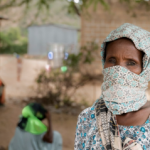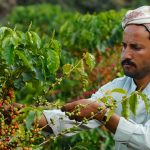This webinar will shed light on global and national lessons from the pandemic for rebuilding resilient value chains and agri-food systems. Speakers will present global and national lessons to inform future food systems and functioning of value chains.
NEW PUBLICATION: Ethiopia’s social safety net effective in limiting COVID-19 impacts on rural food insecurity
By Kibrom A. Abay, Guush Berhane, John Hoddinott, and Kibrom Tafere
Multiple studies have documented the negative impacts of COVID-19 on the poor and vulnerable. Over the past decade, rigorous evaluations have shown Ethiopia’s Productive Safety Net Program (PSNP) yielding positive results in addressing household poverty and food insecurity in the low-income districts it targets. As the pandemic suddenly raised economic stresses on poor households, a new study by Kibrom Abay, Guush Berhane, John Hoddinott, and Kibrom Tefere shows the PSNP has been [...]
PLANNING WORKSHOP: “BUILDING A COVID-19 RAPID RESPONSE AND AG-FORESIGHT DEPARTMENT IN EGYPT”
On February 2nd, 2021 a Planning Workshop took place. The online start-up workshop presented the project’s activities and future plans, including collaborative discussion and brainstorming with stakeholders on the most relevant issues and policies in the agricultural sector’s resilience during COVID-19. [...]
Building a COVID-19 Rapid Response & Ag-Foresight Department in Egypt
On Tuesday, February 2nd the European Union, the International Food Policy Research Institute (IFPRI), in collaboration with the Ministry of Agriculture and Land Reclamation (MoALR), hosted a Planning Workshop for the new project “Building a COVDI-19 Rapid Response & Ag-Foresight Department in Egypt. [...]
NEW PUBLICATION: Impact of COVID-19 on the Yemeni economy
By Dalia Elsabbagh, Sikandra Kurdi, and Manfred Wiebelt
There has been an unprecedented decline in the flow of remittances to Yemen – a vital source of money for millions – as a result of the COVID-19 pandemic. A Social Accounting Matrix (SAM) multiplier model of Yemen’s economy was used to estimate the impact of lower remittances on economic sectors and employment, food systems, and household incomes. Some of the key findings from this modeling exercise are: [...]
- « Previous Page
- 1
- 2
- 3
- 4
- 5
- 6
- …
- 8
- Next Page »




